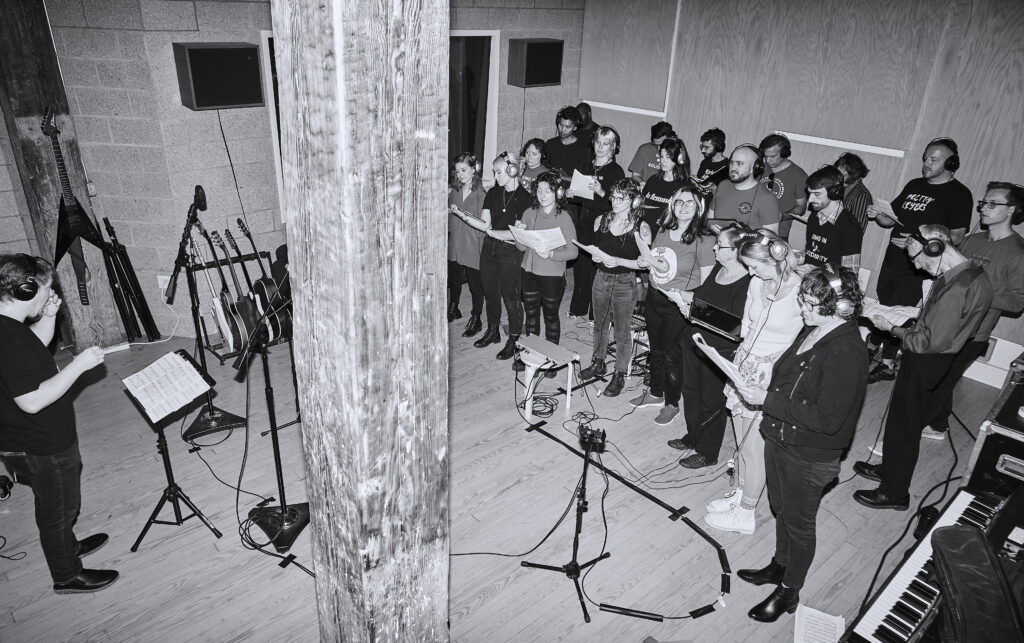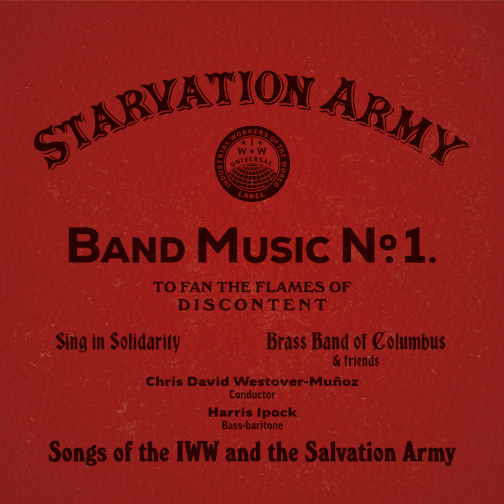
Union Songs Make Us Strong, No. 2
USMUS is an IW column dedicated to the intersection of music and worker struggle.
Chris Westover-Muñoz is a conductor, creator and assistant professor in the department of music at a midwestern university. He worked for a little over two years to put out an album of union songs performed by professional musicians. It is currently available for pre-order at PM Press.

Tell us about your record.
Westover-Muñoz: My album recreates the early battles between the Wobblies and Salvation Army in Spokane in 1909 and 1910.
The IWW and the Salvation Army had a battle of the bands in the streets of Spokane in the early 20th century?
Westover-Muñoz: The IWW directly copied the specific instrumentation of the Salvation Army band and also their appearance. You might even say that the Little Red Songbook borrowed its design from the SA brass band books, which were pocket-sized with red covers.
During this period and in the Pacific Northwest, I think the IWW saw the SA as competitors for the itinerant workers that were coming through. Both groups had a lot of similarities. In fact, some scholars have written that they had a similar worldview of millenarianism, that there was a fast approaching day when the world would be radically changed.
But as competitors, they offered a lot of the same things to itinerant workers: showers, warm meals, a place to leave their belongings while on the job site, access to reading materials. Despite their similarities, their goals were of course completely different. The SA wanted to turn the hobos into respectable working folks that could “contribute to society.” They thought of their bands as a way of teaching folks how to fit in, blend in, not stick out, etc.

What’s the music sound like?
Westover-Muñoz: The album was recorded with Brass Band of Columbus and Sing in Solidarity (the choir of the New York City Democratic Socialists of America). I researched early 20th century Salvation Army band scores and we used those as the accompaniment to the Wobbly songs.
Due to the pandemic we recorded in separate locations. The brass band was recorded at my university in Ohio and we recorded the choir in NYC later.
How did you connect with PM Press to put out your project?
Westover-Muñoz: A political scientist colleague (and fellow Wob) told me about PM Press and I simply wrote to the email address on their website. Two and a half years later, we were ready to go to press on the project.
My hope is that the IWW store will stock it, hopefully Working Class History and also some of the radical bookstores around the country. There will be an initial run of 1,000 CDs and it will also be available on all streaming platforms. We’re also working on a special box set release that will include the Big Red Songbook, Franklin Rosemont’s book on Joe Hill, and also a re-release of the earliest IWW song cards that pre-date that songbook.

What will people get from listening to it?
Westover-Muñoz: I want folks to hear how this music was originally conceived. As a professional musician, I want folks to see this music as part of the American band tradition—a leftist rebuke of bourgeois culture as represented by the military band in its various manifestations such as the Salvation Army band.
When/where can people listen and buy?
Westover-Muñoz: “Starvation Army: Songs of the IWW and the Salvation Army” is available for pre-order at PM Press.
Photos courtesy of Chris Westover-Muñoz.
Ed. note: Interview was edited for clarity.
Contact the IWW today if you want to start organizing at your job.
If you are a member in good standing and wish to take the Organizer Training 101, please email the OTC. If you would like to request a group OT101 with your GMB, job branch, or coworkers, fill out this form.
